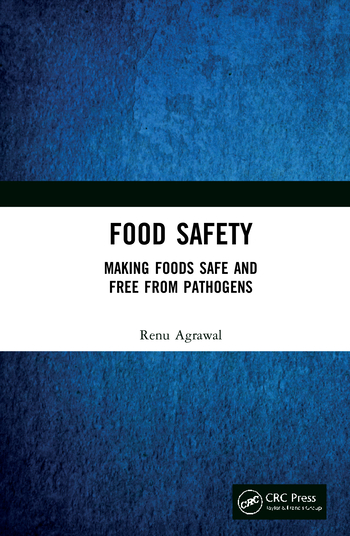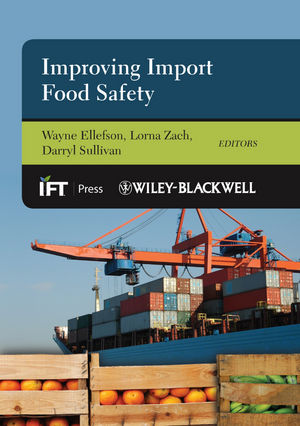Are Third-Party Delivery Services Keeping Food Safe?

Over 2 years ago, I tried to assemble a panel of individuals from meal-kit companies to ask how they were ensuring food safety. I reached out to more than a dozen companies. Only four took me up on my offer, so I sent out my list of questions. Only two companies sent back responses. The article that follows, building on our October/November cover story, is the result of responses from Louise Ward, Director of Corporate Affairs & Corporate Communications, Blue Apron, and Ronnie Sanchez, Food Safety and Quality Assurance Manager, Marley Spoon.
Food Safety Magazine: As a provider of meal kits that are delivered to consumers, does your company consider itself part of the food industry? If so, do you verify and vet your suppliers?
Louise Ward: Yes, we consider ourselves part of the food industry. Our fulfillment centers are regulated by the FDA [U.S. Food and Drug Administration] as well as applicable state and local government agencies.
All of our new farmers and suppliers undergo a comprehensive food safety assessment, including a third-party audit, prior to working with us to ensure that they meet our food safety requirements. Our approved vendors are also subject to routine food safety assessments including audits.
Ronnie Sanchez: Yes, Marley Spoon considers itself part of but at the same time disrupting the food industry. In collaboration between our food safety and procurement teams, we verify all of our suppliers before we place our first order with a new vendor. We verify all of the necessary paperwork (including onsite audits/ visits) and make sure that our suppliers are taking all of the necessary steps to provide us and our customers safe and nutritious food.
FSM: How do you ensure that your products will be kept at a safe temperature during delivery? Do you provide a cold source or special packaging? Do you require a signature upon delivery?
LW: We carefully pack our boxes with insulated thermal liners and refrigerants to maintain appropriate temperatures during transit and delivery, and our team of packaging and food safety experts regularly assess the efficacy of our packaging, which we modify as needed. For example, we alter the size or quantity of refrigerants, or use thermal liners with varying levels of insulation, based on the season, weather conditions, box contents, and delivery destination.
We advise our customers to place all perishable items in the refrigerator immediately upon delivery, understanding that they are receiving temperature-sensitive ingredients. We encourage customers to contact us if anything in their box is missing or if they are unsatisfied with the quality of one of their ingredients, so that we can make it right with our Freshness Guarantee program.
We do not require a signature upon delivery for our meals, however do require a signature from someone 18 years of age or older for our wine program.
RS: At Marley Spoon, we are always studying and verifying that our product arrives at a safe temperature during the delivery process. We use different classes of insulation and ice gel packs that help secure an adequate temperature is maintained during transit from our fulfillment centers to our customer’s doorsteps.
FSM: Do you provide ingredient information for consumers who have special medical issues, like food allergies or celiac disease?
LW: Yes. Our boxes include nutrition, ingredient, and allergen information for each recipe, as required per FDA regulations. This information is also available online for consumers to view when making their weekly menu selections. Due to our just-in-time sourcing model, we advise consumers to check ingredient packaging labels in their delivery for the most up-to-date allergen information.
RS: We list all of the ingredients and allergens in each recipe directly on the recipe card and also additional information is displayed on our website. We do offer recipes that are adjusted to certain allergens, but at this point we do not offer a full menu fitting to specific allergies or diets, aside from vegetarian. Additionally, on our website in the FAQ section, we state: “Please note however that all our recipes and ingredients go through the same facility and production process. Even though we continuously do our very best to avoid any cross-contamination, we cannot guarantee against it.”
FSM: Do you track whether any of your ingredients are the subject of a recall?
LW: Our Regulatory Affairs team routinely monitors the USDA [U.S. Department of Agriculture] and FDA websites for recalls, market withdrawals and safety alerts and formally notifies our procurement, supply chain and food safety & quality assurance teams of events affecting the food industry. Furthermore, our suppliers are required to notify us immediately if an ingredient or product that they manufacture or distribute may be the subject of a market action.
RS: Our food safety team is always monitoring all recall alerts made by the FDA. Our procurement team also has great established relationships with all of our vendors and maintain constant contact with all of them.
FSM: Is the facility where you package your meal kits subject to any food safety inspections or regulated by a state or federal public health agency?
LW: Yes. Our fulfillment centers are regulated by the FDA as well as applicable state and local government agencies. We have a rigorous food safety program, designed to meet FDA’s standards under FSMA [Food Safety Modernization Act], at each of our fulfillment centers across the country to ensure the safety and quality of our ingredients.
Every Blue Apron employee who handles food in any manner undergoes our comprehensive food safety training program, in compliance with FDA Good Manufacturing Practices (GMPs) requirements.
RS: All of our facilities are regulated and registered with the FDA and also subject to health inspections by state and local authorities.
FSM: Do you try to educate your customers about safe food handling practices? Do you provide food safety information on your website that is easily accessible?
LW: Yes. We have a page on our website dedicated to food safety information, including safe food handling practices: blog.blueapron.com/foodsafety/.
RS: We state safe handling information on meats and include within our welcoming booklet in the customer’s first box on how to safely handle food; for example “All perishables are kept chilled inside your box, and should be refrigerated upon delivery.”
Thanks to Louise and Ronnie for their thoughtful responses and for promoting food safety within their respective organizations.
Barbara VanRenterghem, Ph.D., is the editorial director of Food Safety Magazine.
Looking for a reprint of this article?
From high-res PDFs to custom plaques, order your copy today!








